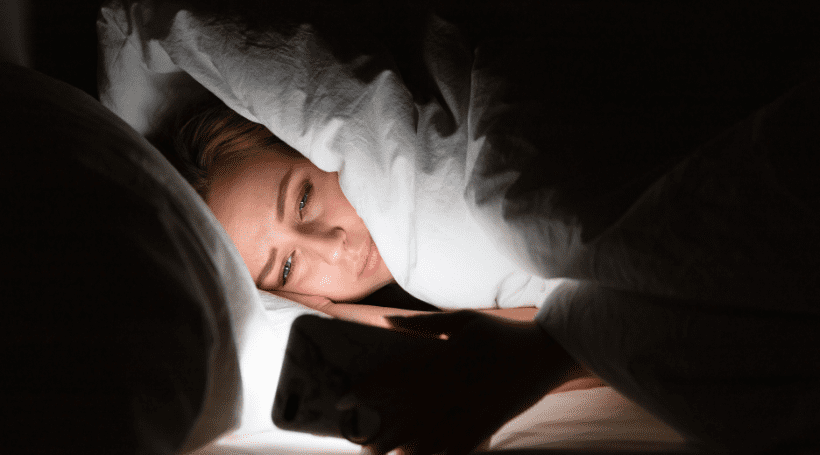It turns out that extra tech time before bed is doing more than giving us some extra recipe inspiration. We spoke with Thanuja Hamilton, MD, of Advocare Sleep Physicians of South Jersey about the risks that come with using tech before bed – and got a few tips to avoid the temptation.
Why tech can hurt
Good sleep is important – it’s when our body revives itself. So if you interfere with those crucial rebuilding hours, you’ll end up feeling more than just tired. “Sleep is the time when our brain cleans out any clutter. Our body recovers from any strain we put it through, even our tissue rebuilds while we’re sleeping,” says Hamilton. “There are a number of ways tech will disrupt a good night’s sleep.”
The first is something we’re all familiar with: FOMO. When you’re scrolling through that Instagram feed, you’re bound to see your friend’s latest designer purchase, your co-worker’s gorgeous trip to Italy or your high school classmate’s baby announcement, and seeing everything you’re missing out on can bring about feelings of anxiety and even depression, says Hamilton.

Thanuja Hamilton, MD, of Advocare Sleep Physicians of South Jersey
“Studies have shown that social media is proven to increase anxiety and depression in teens, so why would we want to put that activity right before bed?” she says.
But tech doesn’t just affect how we feel while falling asleep, it can also keep us from falling asleep all together. We’ve all done it. Gotten into bed at a reasonable hour and decided to catch up on our favorite show for a bit before falling asleep (we need to find out if Carli Lloyd wins Special Forces: World’s Toughest Test!). Then, bam, it’s 2 am. And you’re still awake.
“It’s so easy to lose track of time and before you know it, you’re only able to get a few hours of sleep,” Hamilton says. “And you might think losing an hour isn’t that big a deal, but if you lose one hour each night, that adds up to 30 hours a month.” 
“Plus, when you’re on these devices, you’re being exposed to blue light,” she says. “Blue light inhibits our natural production of melatonin, which we need for good sleep – it helps regulate our circadian rhythm.”
And sure, you can wear those fun blue light glasses, but they’ll only do so much. And they don’t block all of the blue light, says Hamilton.
How to break up with tech (for a bit)
It’s hard to take a break from your tech, even when it means a better night’s sleep. Luckily, Hamilton has some tested tricks to help you prepare for a better bedtime. “We know it’s unreasonable to cut out tech all together, that’s just not going to happen,” Hamilton says. “But the best thing you can do for better sleep is set a curfew and stick to it.”
You can still set an alarm on your phone to wake you up in the morning, and you can even keep it next to your bed overnight. Just make sure you’re not picking it up. “Put it on ‘do not disturb,’” Hamilton adds, “and make sure if it’s on your nightstand, it’s face down and your ringer is off,”.
Read more from Health






